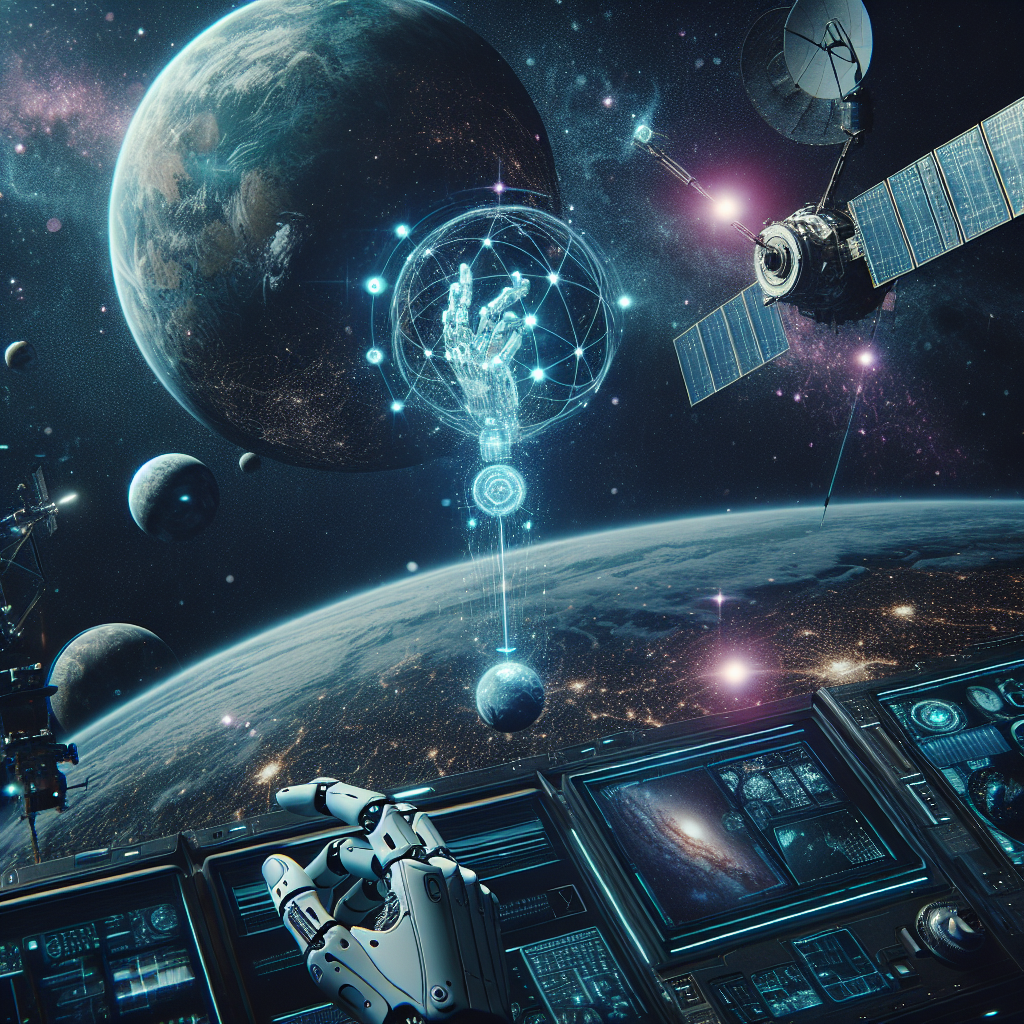The Risks of AI in Space Exploration: Potential Threats and Challenges
Artificial Intelligence (AI) has become an integral part of space exploration, with its ability to analyze vast amounts of data, make decisions in real-time, and automate complex tasks. However, as AI technology continues to advance, there are growing concerns about the potential risks it poses to space exploration. From the threat of AI malfunction to ethical dilemmas, there are several challenges that must be addressed to ensure the safe and responsible use of AI in space.
Potential Threats of AI in Space Exploration
1. Malfunction: One of the biggest risks of using AI in space exploration is the potential for malfunction. AI systems are not infallible and can make errors, which could have catastrophic consequences in the harsh environment of space. A malfunctioning AI system could lead to the loss of communication with spacecraft, navigation errors, or other critical failures that could jeopardize missions.
2. Cybersecurity: Another major concern is the vulnerability of AI systems to cyber attacks. As AI becomes more integrated into space missions, the risk of hackers gaining control over critical systems and causing disruption or sabotage increases. Ensuring the cybersecurity of AI systems in space is essential to protect the integrity and safety of missions.
3. Ethical dilemmas: AI systems are programmed to make decisions based on algorithms and data, but ethical considerations are often complex and nuanced. In space exploration, AI may be called upon to make life-or-death decisions, such as prioritizing the safety of astronauts or choosing between competing objectives. Ensuring that AI systems are programmed with ethical guidelines and values is crucial to prevent unintended consequences.
4. Autonomy: The increasing autonomy of AI systems in space exploration raises concerns about accountability and oversight. As AI becomes more capable of making decisions independently, there is a risk that human operators may lose control over critical systems. Establishing clear lines of responsibility and ensuring human oversight of AI systems is essential to prevent accidents or misuse.
Challenges of AI in Space Exploration
1. Data limitations: AI systems rely on vast amounts of data to learn and make decisions, but the limitations of data availability in space present a challenge. Space missions are often limited by bandwidth and storage capacity, making it difficult for AI systems to access the data they need in real-time. Developing AI algorithms that can operate effectively with limited data is a key challenge for space exploration.
2. Interoperability: Space missions often involve multiple spacecraft, rovers, and other systems that must communicate and collaborate effectively. Ensuring the interoperability of AI systems across different platforms and missions is a complex challenge that requires coordination and standardization. Developing common protocols and interfaces for AI systems in space is essential to enable seamless collaboration and information sharing.
3. Long-term reliability: Space missions are subject to extreme conditions, including radiation, temperature fluctuations, and mechanical wear and tear. Ensuring the long-term reliability of AI systems in space is a critical challenge, as malfunctions or failures could have serious consequences for missions. Developing AI systems that are robust and resilient to the harsh environment of space is essential to ensure the success of future missions.
4. Regulatory oversight: The use of AI in space exploration raises regulatory and legal challenges that must be addressed to ensure compliance with international laws and norms. As AI technology advances rapidly, there is a need for clear guidelines and regulations to govern the use of AI in space. Establishing international standards for the development and deployment of AI systems in space is essential to promote transparency and accountability.
FAQs
Q: How is AI currently being used in space exploration?
A: AI is being used in a variety of ways in space exploration, including autonomous navigation, data analysis, robotics, and mission planning. AI systems are used to analyze data from satellites and spacecraft, make decisions in real-time, and automate tasks that would be time-consuming or difficult for humans to perform.
Q: What are the benefits of using AI in space exploration?
A: AI offers several benefits in space exploration, including improved efficiency, enhanced decision-making, and increased autonomy. AI systems can process vast amounts of data quickly and accurately, enabling scientists to make discoveries and insights that would be impossible with traditional methods. AI also allows spacecraft and rovers to operate autonomously, reducing the need for human intervention and enabling missions to be conducted more efficiently.
Q: What are the ethical considerations of using AI in space exploration?
A: The use of AI in space exploration raises ethical considerations related to accountability, transparency, and bias. AI systems may be called upon to make decisions that have ethical implications, such as prioritizing the safety of astronauts or choosing between competing objectives. Ensuring that AI systems are programmed with ethical guidelines and values is essential to prevent unintended consequences and promote responsible use of AI in space.
Q: How can the risks of AI in space exploration be mitigated?
A: The risks of AI in space exploration can be mitigated through careful design, testing, and oversight of AI systems. Developing robust and resilient AI algorithms, establishing clear lines of responsibility, and ensuring human oversight of critical systems are essential to prevent accidents or misuse. Additionally, implementing cybersecurity measures, ethical guidelines, and regulatory oversight can help to address the potential risks of AI in space exploration.
In conclusion, the use of AI in space exploration offers exciting possibilities for advancing our understanding of the universe and expanding the frontiers of human knowledge. However, it also poses significant risks and challenges that must be addressed to ensure the safe and responsible use of AI in space. By addressing the potential threats and challenges of AI in space exploration, we can harness the full potential of AI technology to propel us towards new discoveries and achievements in the cosmos.

